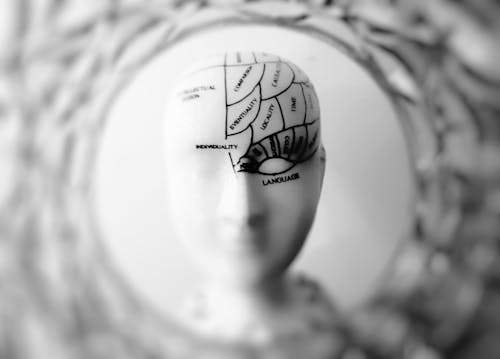Understanding the Impact of Trauma on the Brain and How to Promote Healing

Trauma can have a profound impact on the brain, affecting both its structure and function. When a person experiences a traumatic event, such as a car accident or a physical assault, the brain’s normal coping mechanisms may be overwhelmed. This can lead to changes in the way the brain processes and responds to information, which can affect a person’s thoughts, emotions, and behaviors.
One of the key ways that trauma affects the brain is by altering the activity of the hippocampus, a region of the brain that is important for memory and learning. Research has shown that the hippocampus can shrink in size as a result of trauma, which can lead to problems with memory and learning. Other brain regions that may be affected by trauma include the amygdala, which is involved in the processing of emotions, and the prefrontal cortex, which is involved in decision-making and impulse control.
Trauma can also lead to changes in the way that the brain’s neurotransmitters, such as dopamine and serotonin, function. These chemicals play a crucial role in regulating mood, and changes in their levels can lead to symptoms such as depression and anxiety.
The good news is that the brain is capable of healing and adapting in response to trauma. This process is called neuroplasticity, which refers to the brain’s ability to rewire itself in response to new experiences and information.
One way to promote healing after trauma is through therapy, such as cognitive-behavioral therapy (CBT) or eye movement desensitization and reprocessing (EMDR). These therapies can help a person process and make sense of their traumatic experiences, and can also teach them coping skills for managing symptoms such as anxiety and depression.
Medication can also be beneficial for individuals who are struggling with symptoms of trauma. Antidepressant and anti-anxiety medications can help regulate neurotransmitters, which can improve mood and reduce symptoms of anxiety and depression.
It’s also important to note that self-care practices such as regular exercise, healthy eating, and getting enough sleep can also be beneficial for the brain and promote healing after trauma.
In conclusion, Trauma can have a significant impact on the brain, but with the right support and treatment, the brain can heal and adapt in response to traumatic experiences. Therapies and medication can be effective in managing symptoms and promoting healing, and self-care practices can also play an important role in promoting overall well-being.
- National Suicide Prevention Lifeline: 1-800-273-TALK (8255)
- National Domestic Violence Hotline: 1-800-799-SAFE (7233)
- National Sexual Assault Hotline: 1-800-656-HOPE (4673)
- The Substance Abuse and Mental Health Services Administration (SAMHSA) Treatment Referral Helpline: 1-800-662-HELP (4357)
- The National Child Traumatic Stress Network: 1-866-NCTSN-HELP (1-866-628-7647)
- The Veterans Crisis Line: 1-800-273-8255, press 1
- The Crisis Text Line: text HOME to 741741


 Virtual Counseling for Florida Residents
Virtual Counseling for Florida Residents